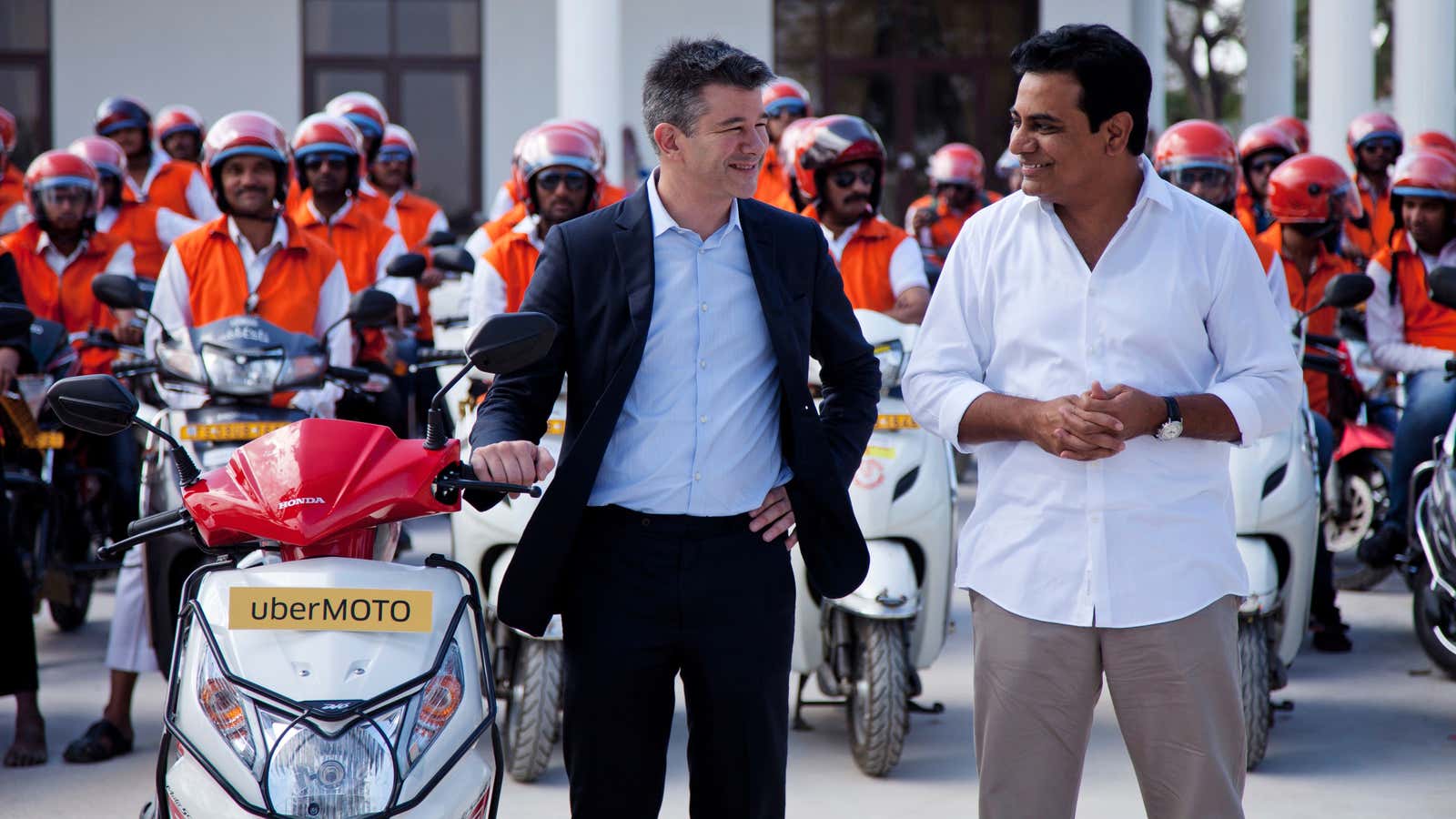Patriotism seems to be the new buzzword for India’s technology startups.
Under intense competition from foreign players like Amazon and Uber, Indian companies such as Flipkart and Ola are advocating protectionist policies. These home-grown tech firms are making a nationalistic pitch, pointing at Chinese policies that treat foreign companies merely as a source of capital instead of letting them compete on the domestic front.
“China rightly identified consumer internet as important and moved to protect it, and we need to do the same in India,” Ola CEO Bhavish Aggarwal said this month at a technology summit hosted by Carnegie India in Bengaluru. “China has usually followed the route of using foreign capital and expertise to come up with domestic companies, without letting foreign companies themselves come in.”
The idea isn’t sitting well with Travis Kalanick, the CEO of Uber, who spoke about the issue while in India this week.
“I will apply for Indian citizenship if this gets over the top,” Kalanick joked during a fireside chat with Amitabh Kant, CEO of the National Institute of Transforming India (NITI Aayog).
Kalanick pointed out the irony in the local players’ objection to Uber. He argued that, like Uber, Ola’s majority ownership, too, is foreign, considering the amount of funding both companies have received from investors outside their home countries. In the past, Ola has tried to take down its America-based rival by alleging that Uber was flouting local laws.
The Uber CEO made clear that his company had no intention of merging with a top competitor in its second-largest market, like it did with rival Didi Chuxing in China.
Uber’s next frontier is self-driving cars, a concept that is still facing pushback in the US. When asked if India would ever see its autonomous vehicles, Kalanick commented, “India will be the last one to get autonomous cars—have you seen the way people drive here?” Although the statement was made partly in jest, if you’ve been on Indian roads, you know what he means.
